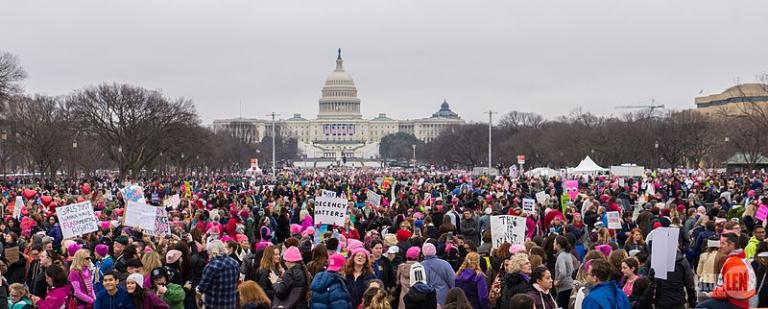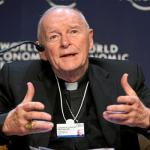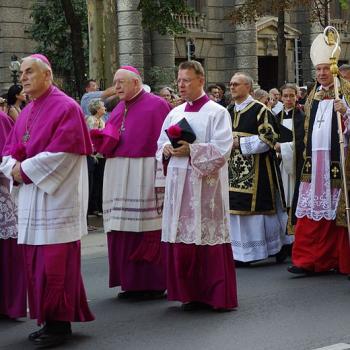
So now Cardinal McCarrick is now just, well, I guess, Mr. McCarrick. The Washington Post, among others, reports a widely-acknowledged need to clean house. He will be given a trial according to canon law but the eventual punishment is unclear except for the sort of “life of penitence” that occurs in such cases. The Post speaks of McCarrick also being de-frocked, and I’m not entirely sure what that means, that is, what the consequences are — the Post reports this as a matter of him being “becoming a lay person, not a Catholic priest” but I thought that this was considered theologically impossible, and the only thing that can happen is to be banned from acting in any way as a priest; in any case, for someone as corrupt as McCarrick reportedly was, I’m not sure what the consequences would be. Is it worse to semi-imprison him in a monastic cell somewhere, or leave him to his own devices out in the world? Can the church even compel the “life of penitence” in the first place, if McCarrick rejects it?
But having said that: what next?
Other people, more in the know and more connected than I, have said things like “hold the bishops to account.”
But here’s what I struggle with: how, exactly?
Simcha Fisher on twitter says,
Okay, Catholics. What do we do? Total boycott of giving money until there are widespread defrockings? This is a sincere question. We can't wait for the magisterium to put appropriate pressure on itself.
— (((Simcha Fisher))) (@SimchaFisher) July 29, 2018
I stumbled on a Regina Magazine assertion that one should only give to seminaries and other organizations which have been positively vetted. But that’s an abandonment of parish life. Do we boycott the bishops’ annual appeals? I don’t know whether, in that case, they would just demand money of the parishes anyway. Probably depends on the diocese.
And the trouble is this:
it’s now taken as a given the widespread numbers of bishops knew about McCarrick and shrugged it off. But how do you hold individual bishops to account? How do you ask them to prove their innocence, when the misdeed in question is inaction in the face of knowledge? How does an individual bishop prove he didn’t know? Or how does the laity prove he did know?
And likewise with the ongoing accusations that seminaries are — well, here’s what the Regina author has to say, in the second person, directed at the perpetrators:
Why? You have sabotaged the future of the Faith by preventing honest young men with genuine vocations from entering our seminaries – calling them ‘rigid’ when you read in their eyes that you cannot suborn them.
And the ones you DO admit to seminaries? I have spoken personally with dozens of them. Your seminary teachers prey on them, using every grooming and abusive tactic in the book. If they acquiesce, they are prey for blackmail their entire careers. If they refuse, they are openly humiliated and mocked, until they leave – their faith all but shattered, their psyches all but destroyed.
As the mother of a son, here’s what I told a young man in the Frankfurt, Germany seminary who told me and my husband that his teacher was openly mocking him at lunch gatherings because he had refused to have sex with him – knowing full well the boy was from a poor family which couldn’t possibly afford to repay the tuition he would owe them if he quit.
But how does a bishop prove of the seminary under his control that this particular one is “clean,” free of this abuse?
Yes, in this case, we can hope that others will speak out, will say, “as a student at seminary X, this happened to me/I watched this occur, and I now feel emboldened to speak out.”
But the bishops — it feels like a desperate hope to believe that people will step forward and say, “I know that bishop X knew.”
Are we trapped? Is the best we can do, to reproduce the tactics of protest marches, and hope that the bishops among them rat on each other? Do we then create a witch-hunt culture in which we demand defrockings of enough people to sate our anger? Do we risk a result in which the less-powerful bishops become the scapegoats?
I suppose the answer depends, in part, on the question: how many of the bishops, our bishops, were complicit, were silent, did not take action, at either McCarrick in particular, or similar abuse and corruption elsewhere? How many are innocent, were truly “out of the loop”? To what extent do the bishops spend their time trading gossip at get-togethers? Is there a secret Facebook group for bishops where at this very moment someone is saying, “well, of course we all knew, but we can’t admit that”? Or are their cliques — the traditionalists in one corner, the progressives in the other, griping to themselves about how the other guys spend too much time on X and not enough on Y?
Catholic readers, what do you think?
Image: do we march on the cathedral instead of the White House? https://commons.wikimedia.org/wiki/File:Trump-WomensMarch_2017-top-1510075_(32409710246).jpg












